Autism and Sleep: Help Your Kid Sleep Peacefully
written by / September 3, 2019
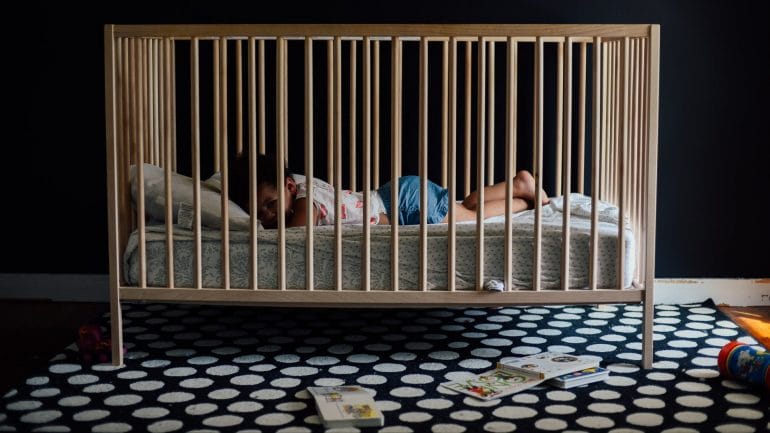
It’s essential that children get the right amount of sleep as they grow. Science confirms that sleep is necessary for their mental and physical development, as well as their overall health status. However, autism and sleep aren’t always compatible, and sleep problems can occur long after a child is diagnosed with the condition.
During the first months of life, babies go through a normal sleep and wake cycle. They gradually reduce the number of naps they need and start sleeping for more extended periods. However, the sleep problems that autistic children often develop may involve getting too much sleep or not sleeping at all, thus keeping them from having a healthy sleep cycle.
Is Autism a Disability?
Autism is not a disease but an innate mental disorder that impacts behavior, in which the inner world is more important to the person than the outside. The condition is untreatable but is amenable to correction, especially at an early stage.
Autistic signs are observed in varying degrees in one out of every 70 children, with boys having it twice as often as girls. The so-called high-functioning autism symptoms may even be so mild that no one realizes someone has autism. In addition, the symptoms of autism in adults are different than they are in children.
It’s more accurate to use the term autism spectrum disorder (ASD) to denote all conditions related to autism. The autistic spectrum includes several conditions, including Asperger syndrome.
Some features are noticed early on: the child may be developing but with some delays. In others, after healthy development, up to 1.5–2 years of age, a reversal occurs, and some skills are lost. Autism and sleeping problems can co-occur at this age.
Autism in adults and children is a hereditary disorder in 70% of patients, according to scientists. The manifestations could be different: the child doesn’t respond to your smile, speech is delayed, or they find it unpleasant to be touched.
In some cases, the child manages to adapt and lead a normal life. Autism and sleep issues should be managed together. Moreover, the sooner you begin teaching your child the right habits, the easier it is to develop a healthy life.
Usually, at different stages of development, a child needs different amounts of sleep. In the first six months, for example, infants generally sleep 16 to 20 hours a day. Studies show that between 40% and 80% of children with autism have difficulty sleeping, which is usually expressed in the following sleep-related issues:
- Trouble falling asleep
- An inconsistent sleep routine
- Poor quality of sleep and anxiety
- Waking up frequently and early
Most of these are also signs of autism in adults.
ASD and Sleep Disorders
Generally, babies don’t sleep more than four or five hours at a time because they need to be fed often during the first six months of their lives. However, the duration of their sleep is individual—some of them can sleep for up to 10 hours. This is not the case with autism. Usually, the problem is how to get an autistic child to sleep.
Every healthy baby builds his or her own regimen, and no formula can calculate how much time it will take to relax. Almost all infants during the first half-year of their lives can sleep without interruption for six to eight hours at night.
Over time, babies usually begin to shift their schedule, getting tired later in the evening. During the second half of the first year, the little ones sleep for up to 3 hours during the day and up to 11 at night. In the case of autism, insomnia can explain why the number of hours autistic kids spend asleep are fewer than they are for other children.
At this age, the fear and anxiety of separation from the mother can grow, so it’s a good idea to offer your child a suitable plush toy to cuddle in the crib. Over time, your child will need less sleep, and a full night’s rest should provide them with enough strength and energy throughout the day. However, in some cases, your autistic child won’t sleep alone, and you should be very inventive in how to ensure they get enough sleep. You can also consider getting a bigger bed so you all have enough sleeping space.
From the first to the third year, your child should sleep about 10–13 hours, and once they reach preschool age, it will be 10–12 hours. Elementary school kids need about 11–12 hours of sleep. During these periods, be careful about what your child watches on TV, as a child’s imagination is quite potent. Gaming time in front of the computer should also be limited.
How Does Autism Affect Sleep?
There’s no consensus on what causes sleep disorders in an autistic child, but there are some theories known to researchers.
1. A Child’s Inability to Interpret Social Signals
We usually know when it’s time to go to bed as daylight shifts into night. Another way a child can understand these social cues is by watching their peers prepare for bed. This theory puts forth that it’s impossible for children with autism to interpret these signals. However, it doesn’t tell us how to get an autistic child to sleep in their own bed when the child doesn’t think they need to sleep.
2. An Imbalance in Melatonin Secretion
Another theory about what causes sleep disorders in autistic children relates to the production of the hormone melatonin. Usually, melatonin helps us fall asleep and regulate our sleep and wake cycles. To produce melatonin, the body needs an amino acid called tryptophan, which has been observed in low or high quantities in an autistic child.
This demonstrates a clear connection between autism and sleep problems. Usually, melatonin levels rise in the evening and decrease in the morning. Studies show that some children with autism don’t secrete melatonin at the right time of day, with high levels during the day and low levels at night.
3. Excessive Sensitivity to External Stimuli
This is especially the case with touch or sound. Another reason why children with autism have poor sleep quality is that they may wake up suddenly. Anxiety is the natural consequence of this condition, and it adversely affects sleep. Autistic children are usually anxious, probably since good-quality sleep and autism disorder are inversely correlated.
The lack of a good night’s sleep can harm a child’s life and health. Experts believe that in children with autism, there’s a link between poor sleep quality and the following conditions:
- Hyperactivity
- Depression
- Aggression
- Behavioral problems
- Irritability
- Inferior learning ability and impairment in cognitive functions
Autism and sleep patterns that become disturbed go hand in hand. And if your child is unable to sleep at night, you’re also likely to wake up—meaning you probably also suffer from poor quality of sleep. Sleep deprivation, in turn, may cause many adverse health effects. For example, studies show that children under the age of 5 who don’t sleep are more likely to be obese.
How Do You Get an Autistic Child to Sleep?
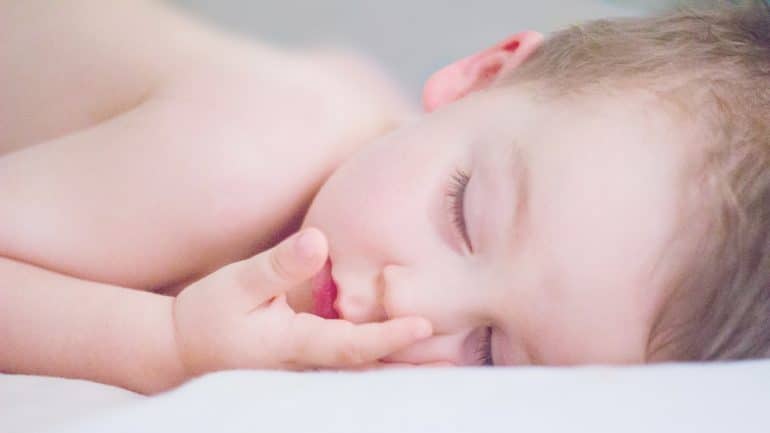
If you suspect that your child is having trouble sleeping—i.e. they’re having difficulty falling asleep or they wake up several times during the night—this may be a sign of sleeping problems.
To be sure, a pediatrician can refer you to an ENT specialist to help exclude other sleep issues. Before going to the doctor, you can prepare a journal of your child’s sleep pattern for a week to keep track of how many hours your child sleeps and when. Taking notes on any manifestations of autism and the night terrors that occur as a result would be helpful as well. You can include in the log any details like snoring, changes in their breathing pattern, or difficulty breathing.
The lack of a good night’s sleep can affect not only the child but everyone in the family. If you wake up every night with your child, and it disrupts your whole family, there are some tricks and sleeping aids that can help. However, medications should be used as a second-line therapy when autism and a sleep disorder present together. There are several lifestyle changes and natural sleeping pills that can improve the duration and quality of a child’s sleep:
Limit Caffeine
Avoid giving your child caffeinated beverages and sugary products at bedtime.
Build Good Night Routine Habits
Take a shower, read a fairy tale, and get the child to bed at a particular time every night. Poor sleep hygiene is associated with deteriorating autism symptoms; therefore, it’s essential to create an excellent sleep environment and routine.
Limit Stimulating Distractions
Turn off the TV or video games and stop any similar activities at least an hour before bedtime. These activities could even be the reason why your autistic child wakes up crying. It’s particularly important to pay attention to TV programs, movies, or computer games. Certain content can be stressful, causing nightmares or restless sleep.
Relax Before Bed
Help your child calm down at bedtime by telling him or her a story, massaging them gently on the back, or playing gentle music. Excessive emotions throughout the day can make it hard for an autistic teenager or child to relax and may lead to trouble staying asleep.
When your child is overburdened, it’s hard to get them to go to bed. Therefore, it’s a good idea to avoid vigorous activities at bedtime. It’s best to emphasize quieter activities such as reading a fairy tale, singing a lullaby, etc. If your child is not sleeping enough during the night, you can suggest reading a book or writing in a diary.
Keep the Bedroom Dark
You can prevent your child from being disturbed by having secure shutters or blinds that block light. Consult a psychologist about exposure to direct sunlight in the morning, which may help regulate the secretion of melatonin in the body. Of course, this won’t be applicable if instead your autistic child sleeps a lot.
Consider Safe Sleep Aids
Ask your pediatrician about giving your child melatonin just before bedtime. This supplement is often used as a sleep aid, and research has shown that it’s safe and doesn’t harm children.
Have Good Daytime Habits, Too
It’s crucial to create a peaceful and comfortable environment not only before your child falls asleep, but also during the day. Clean and fresh air helps anyone sleep well. Make sure the room is ventilated. If your child has allergies, avoid placing dust-collecting objects in the room. Flowers, perfumes, soaps—they have no place in a baby or toddler’s sleeping space. In fact, sensitivity to smell may be one of the reasons your autistic child wakes up too early.
If the child has spent their day indoors, it’s a good idea to take a short walk in the fresh air in the evening.
Help Autistic Babies with Teething
Teething is always a tough time for a baby, and it can impede sleep for an autistic kid. Offer your child a rubber baby toy designed for this purpose. If your baby is crying at night, you may want to cover their gums with a pain reliever as recommended by your pediatrician. In any case, this period requires a great deal of patience and understanding.
Have Nap Time
Autism and naps can be good friends; thus, if the child needs to rest for a while, provide them with a calm and peaceful environment for napping.
Keep Healthy Eating Habits

It’s also vital that their last meal is consistent before bedtime. The child shouldn’t eat snacks during the day or eat unhealthy meals for dinner—which should be easier to digest than lunch.
FAQ
Can sleep apnea cause autism?
No, sleep apnea cannot cause autism. The latter is among a spectrum of disorders, most of which a person is genetically predisposed to. On the contrary, autistic individuals are more prone to possess mutations in genes related to the sleep-wake cycle. This could be the reason autistic people have different sleep disorders, including sleep apnea, which statistics show to be horrifying. Nevertheless, they may also carry mutations that impact the production and secretion of melatonin, which can further disrupt sleep.
Do autistic babies sleep less?
Since children with ASD usually have sleep problems, it’s expected for them to sleep much less than what’s normal for their age. Conversely, they may also sleep for longer periods of time. After all, sleep disorders can vary from insomnia to hypersomnia.
Do autistic babies cry a lot?
The typical autistic symptoms don’t include crying a lot. However, children with autism have trouble accepting any change, so they strive to keep maximum order in their lives. Changing pieces of furniture or anything else in their normal environment can cause hysteria, which often comes with a lot of crying.
Conclusion
Currently, there are various ways to work with autistic children, and some of them are quite effective. The main task of parents is to recognize their child’s symptoms of anxiety as early as possible. And since autism and sleep don’t always go well together, while working with your child, it’s best to manage the sleep disorders that accompany the condition at the same time.


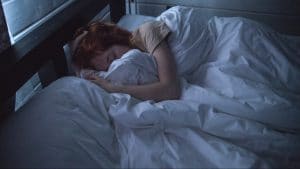


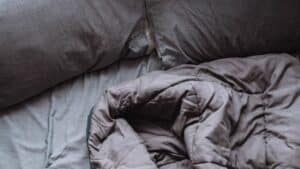

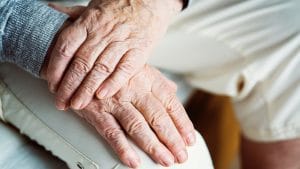
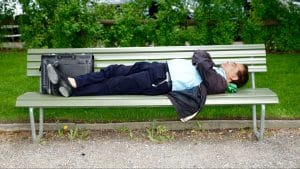
Warning: Undefined array key "format" in /home/602518.cloudwaysapps.com/cspedpjass/public_html/wp-content/themes/disturbmenot/template-parts/post-item/post-comment.php on line 23
Warning: Undefined variable $commenter in /home/602518.cloudwaysapps.com/cspedpjass/public_html/wp-content/themes/disturbmenot/template-parts/post-item/post-comment.php on line 27
Warning: Trying to access array offset on value of type null in /home/602518.cloudwaysapps.com/cspedpjass/public_html/wp-content/themes/disturbmenot/template-parts/post-item/post-comment.php on line 27
Warning: Undefined variable $commenter in /home/602518.cloudwaysapps.com/cspedpjass/public_html/wp-content/themes/disturbmenot/template-parts/post-item/post-comment.php on line 29
Warning: Trying to access array offset on value of type null in /home/602518.cloudwaysapps.com/cspedpjass/public_html/wp-content/themes/disturbmenot/template-parts/post-item/post-comment.php on line 29